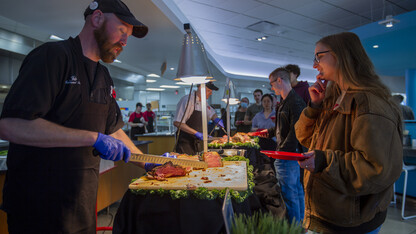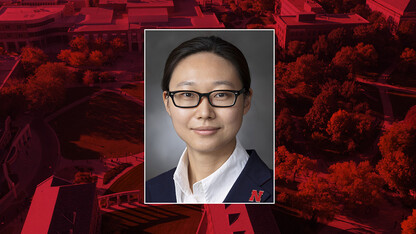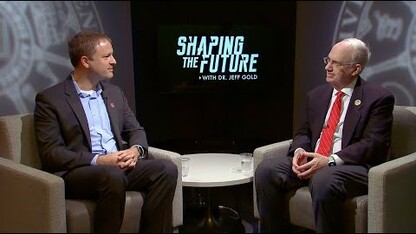
The Robert B. Daugherty Water for Food Institute at the University of Nebraska will host “Remote Sensing for Crop Water Productivity Targets and Monitoring” at 1:30 p.m. Dec. 15 in the Hardin Hall Auditorium on East Campus.
Wim G.M. Bastiaanssen, professor of global water accounting for UNESCO-IHE and professor of civil engineering and geosciences at Delft University of Technology in the Netherlands, will discuss using remote sensing data to analyze important water management problems and drive agricultural decision-making. The talk is free and open to the public.
Bastiaanssen is an expert in earth observation technologies for land and atmospheric processes, with a specialization in river basin management and agricultural water management. He has extensive experience in irrigation systems hydrology at field and regional scales. His interests are in computing intelligent pixels and using that spatial information to diagnose water resources management situations where data is limited. He developed the Surface Energy Balance Algorithm for Land, an image-processing model that maps evapotranspiration, biomass growth, water deficit and soil moisture.
As UNESCO-IHE’s Global Water Accounting Chair, he oversees an international, standardized reporting system for gauged, poorly gauged and ungauged basins. He is the founder of Water Accounting Plus and WaterWatch BV, and co-founder of SEBAL North America and eLEAF. His work with Water Accounting Plus provided the International Water Management Institute with an analytical framework to describe water flows, fluxes, consumptive use and services, and water resources reporting.
Bastiaanssen holds a doctorate in eco-hydrology, soil physics and groundwater management from Wageningen Agricultural University and a bachelor’s in tropical land and water management engineering from Larenstein College in Velp.
The Robert B. Daugherty Water for Food Institute at the University of Nebraska was founded in 2010 to address the global challenge of achieving food security with less stress on water resources through improved water management in agricultural and food systems. The institute is committed to ensuring a water and food secure world while sustaining the use of water for other human and environmental needs.
The University of Nebraska has invested in four interdisciplinary, university-wide institutes — including the Robert B. Daugherty Water for Food Institute — that leverage talent and research-based expertise from across the University of Nebraska system to focus on complex state, national and global challenges.
For more information, go to http://waterforfood.nebraska.edu.







